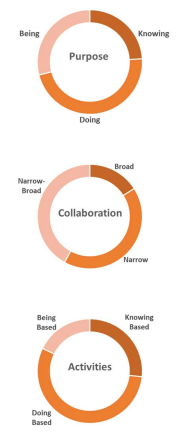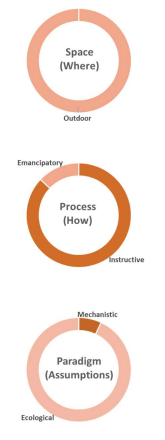BRIDGING THE GAP TO REIMAGINE SOIL HEALTH EDUCATION
Discrepancies in Soil Health Education
Our study reveals a broad divergence between current perceptions and the envisioned future of soil health education across all dimensions examined.
Learning environments
Current education mostly takes place indoors, while there’s a strong wish to move toward more outdoor and field-based learning.
Educational Approach
Participants would like to see a shift in mindset: Away from fragmented, mechanical teaching, towards more ecological and holistic ways of thinking and learning.
Learning Methods
There is a strong call for greater emphasis on experiential learning and extensive collaboration across disciplines. These methods are still rare but seen as key for meaningful soil education.
Teaching Style
While a shift toward more student-centred learning is desired, a balance remains between aspiration and the current instruction-oriented style.
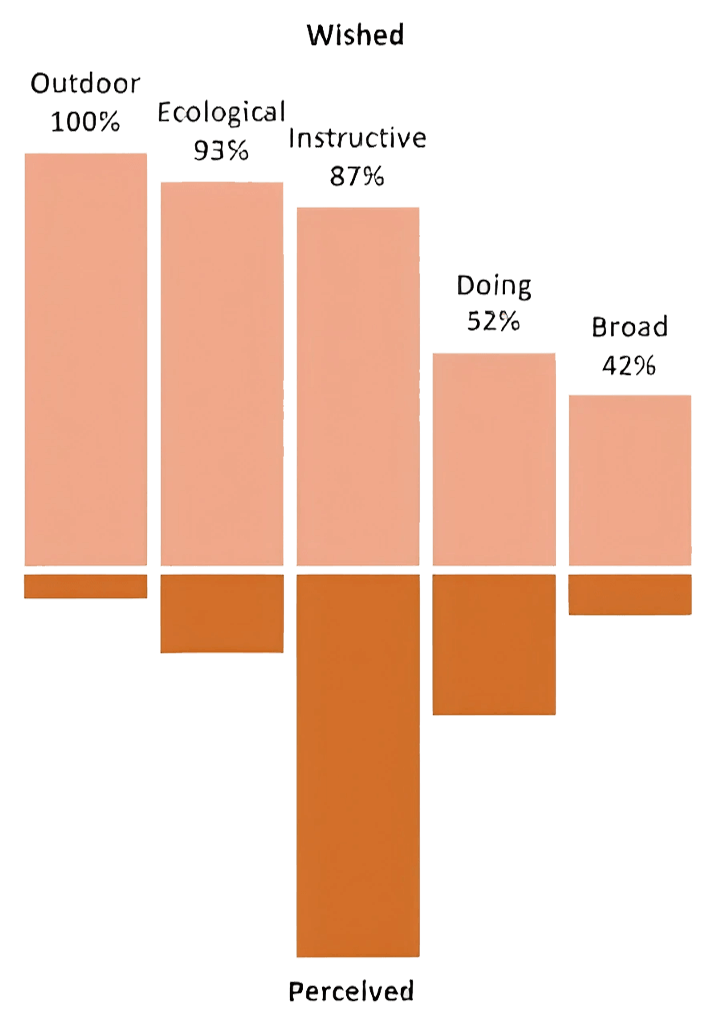
Perceived
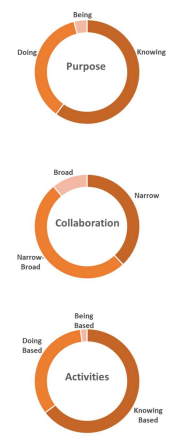
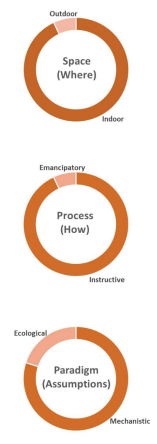
Wished
